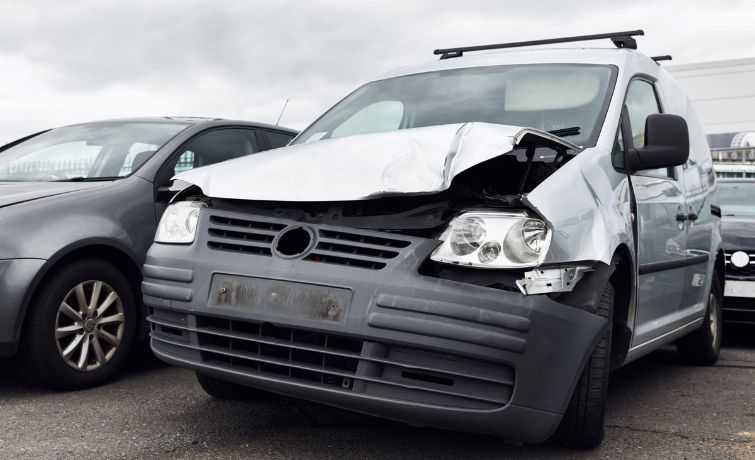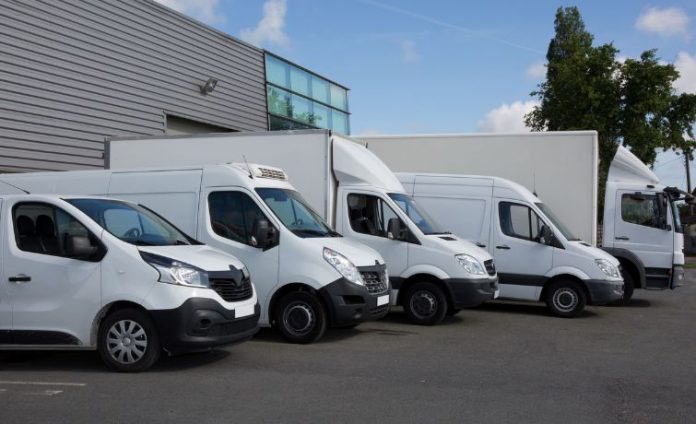Vehicle accidents can be devastating and costly, especially for businesses. Whether you’re a local home renovation contractor with a few vans for transporting your team and the necessary tools and equipment or a nationwide delivery corporation with large trucks, getting a call from one of your drivers about an accident can be problematic.
As such, business owners must be prepared and understand the basics of commercial vehicle accidents to minimize damages. In this article, you’ll learn the prevalence of commercial vehicle accidents, their causes, prevention measures, and what to do when it occurs.
An Overview Of Commercial Vehicle Accidents
A commercial vehicle refers to any motor vehicle used for business or commercial purposes, for instance, carrying business goods or fare-paying passengers. The emotional side of driving in Wiltshire can include delivery or box trucks, taxi cabs, passenger vans, company cars, and oversized trailers and trucks. Vehicles registered or titled to a corporation or company automatically receive a commercial designation.
On average, commercial vehicles could travel 12,000-60,000 miles a year. As such, they have a greater risk of road accidents and crashes–whether a fender bender with your service van or a fatal Amazon delivery accident.
In particular, commercial accidents involving large trucks are more complicated and catastrophic. In fact, statistics show that almost 5,000 large trucks were involved in a fatal accident in 2020 alone. Most fatalities in large truck accidents are occupants of other vehicles, followed by truck drivers and occupants. Meanwhile, almost 150,000 were injured in large truck accidents.
What Causes Commercial Vehicle Accidents?

The most significant factor causing truck accidents lies with the driver–whether the driver of the commercial vehicle or the driver of another vehicle. Generally, commercial vehicle drivers may cause road accidents due to several reasons, including:
- Fatigue
- Driving while intoxicated
- Distracted driving
- Reckless driving, including speeding and failure to yield the right of way
However, not all commercial vehicle accidents are the drivers’ fault. External factors can also contribute to road accidents, including:
- Poor vehicle maintenance
- Poor cargo loading
- Bad weather
- Poor road conditions
- Unrealistic time constraints and pressure on drivers
- Poor driver training
Generally, any combination of these factors can cause road crashes, especially fatal ones. For instance, unrealistic pressure on overfatigue drivers and bad weather can significantly increase the risk of road accidents.
Tips To Prevent A Commercial Vehicle Accident
Commercial vehicle accidents can be disastrous and expensive, especially when a truck is involved. As such, knowing how to reduce the risk to your commercial vehicle and driver is essential. Here are some tips worth noting:
- Regular Driver Training
Businesses have no control over road mishaps. But you can control how to keep your drivers focused on the road and avoid these accidents. As a good start, regular driver training can help boost overall safety awareness to minimize accidents.
These training programs are designed to help commercial vehicle drivers improve their skills, increase productivity and efficiency and change unsafe driving habits. All of these can help reduce the risk of accidents and liability.
Ideally, you should schedule regular training for experienced drivers and recruits. It helps drivers upgrade their skills and stay updated on driving laws. As a bonus, training can enhance drivers’ satisfaction and engagement with their roles.
- Stay On Top Of Vehicle Maintenance And Procurement
Preventive commercial vehicle maintenance is critical in minimizing the possibility of accidents. After all, even if you have responsible and well-trained drivers, poor vehicle condition can still compromise their safety and increases your business’s liability.
That said, proactive commercial vehicle maintenance can help reduce the risk of mechanical failures and other breakdowns, which could result in road accidents. In addition to staying on top of vehicle maintenance, you should also have careful procurement procedures. For example, choose a suitable vehicle with high safety technologies, ratings, and other critical features that can help make your fleet safer.
- Share Essential Details Of Trips With Your Drivers
Part of ensuring safer driving is to allow your employees to take part in planning their routes. After all, drivers need to be familiar with the route before leaving. This is particularly true for larger trucks since they may be unable to use the same roads and underpasses as regular cars. Thus, getting a lay of the land ahead of time is critical.
In addition to the route, you should let your driver know what they’re hauling. For instance, if you’re an independent contractor, a moving company, or a commercial vehicle rental company, you may be hired by different companies daily. Some companies may not be as transparent, but they should at least let you know the risks of what you’re hauling. This can help your driver understand what to do in an emergency.
What To Do When Your Commercial Vehicle Is Involved In An Accident?
Despite your efforts to avoid commercial vehicle accidents, there’s still a chance you’ll get a call from your driver that they were in an accident. In such cases, you must know what to do.
- Check On The Driver
Your commercial vehicle can be replaced but not the lives of your drivers. And the best employers and managers care for their employees’ safety and well-being.
That said, once you’re notified of an accident, check on your driver and their passengers. Encourage them to see a doctor immediately to ensure their health and for easier HR documents and insurance processing.
- Instruct Them What To Do
If your employee is okay and has been checked by a medical professional, instruct them on what to do next. You can ask them to gather evidence by taking videos and pictures of the scene, which can help determine liability and assess property damage. You can also ask them to talk to the other driver and any witnesses.
- Prepare An Accident Report Form
A standardized accident report form can help streamline the process of managing commercial vehicle accidents and insurance claims. As such, include basic information on the form, including the drivers’ and passengers’ names and contact numbers, vehicle information, property damage, and injuries.
- Be Ready For Claims
Generally, you need to prepare for the potential claims process. So, inform your insurance provider immediately and allow them to conduct investigations, streamline, and manage claims effectively.
Takeaway
If your business relies on any commercial vehicle, from vans to large trucks, it’s important to understand and prepare for road accidents. Although you hope that your commercial vehicles will never be involved in a road accident, it’s best to know what to do and the basics to help you navigate the situation more carefully.
We hope the above information has given you a general idea about commercial vehicle accidents so you can better protect your drivers and your business interest.































